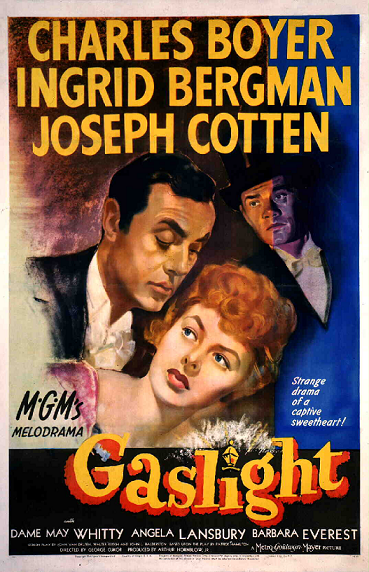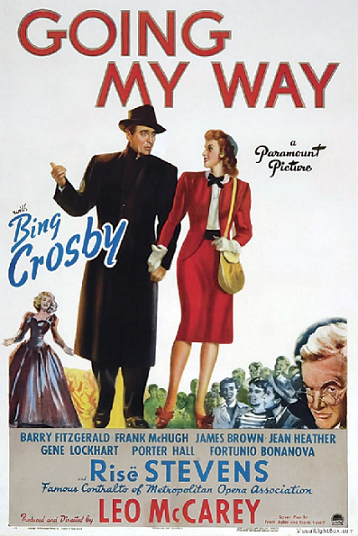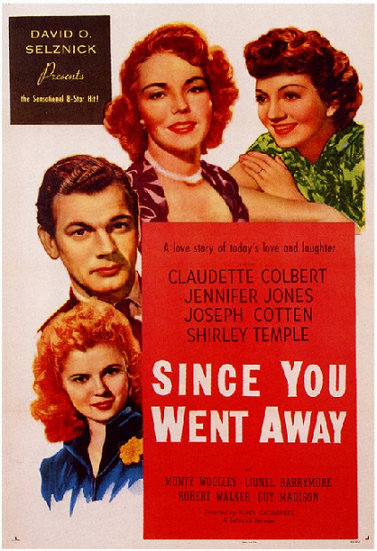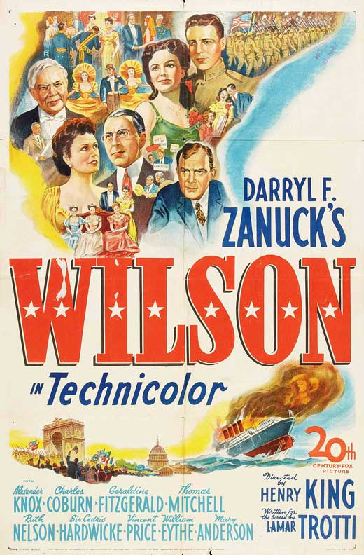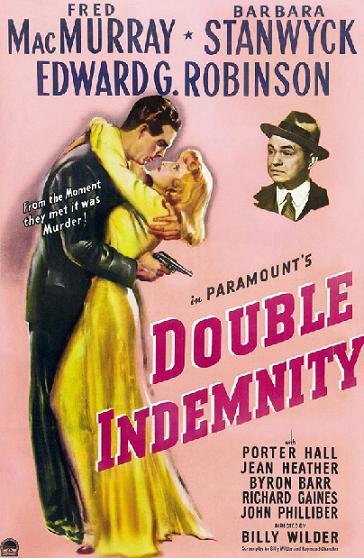
Starring: Fred MacMurray, Barbara Stanwyck, Edward G. Robinson, Jean Heather, Tom Powers
Director: Billy Wilder
Summary: An insurance salesman gets seduced into plotting a client’s death
Other Nominations: Director, Actress (Stanwyck), Adapted Screenplay, Dramatic Score, Sound Recording, B&W Cinematography
Positives
-This is basically the definitive film noir in that it contains almost everything you think of with the genre, and does it well, from the dialogue, the writing, the characters and the lighting. Most notable is the often-imitated dialogue, co-written by legends Billy Wilder and Raymond Chandler.
-I think the decision to tell the whole story in flashback with narration works really well, as the beginning is a great hook for a story that takes a bit to get going otherwise.
-Edward G. Robinson is great in a supporting role as MacMurray’s boss and I’m really surprised he didn’t get an Oscar nomination. Robinson is always fun in his roles, but his character has quite a bit of depth here that makes it stand out.
Negatives
-The story gets progressively better and better throughout its run time, but for whatever reason I never thought it was great, just very good. I’ve seen a number of film noirs that I thought were much more exciting, more tense, had better characters, etc. such as The Third Man or The Maltese Falcon, this just never reached anywhere near the heights of those films for me.
Other Stuff
-Not content with just making Humphrey Bogart’s career my turning down the roles that made him a star, George Raft also turned down the lead in this movie, that made Fred MacMurray a star.
Overall
Really good movie that I didn’t like as much as most people seemed to-it’s worth watching and towards the end it’s great, but it was nothing I would rave about.
Rating: B+

